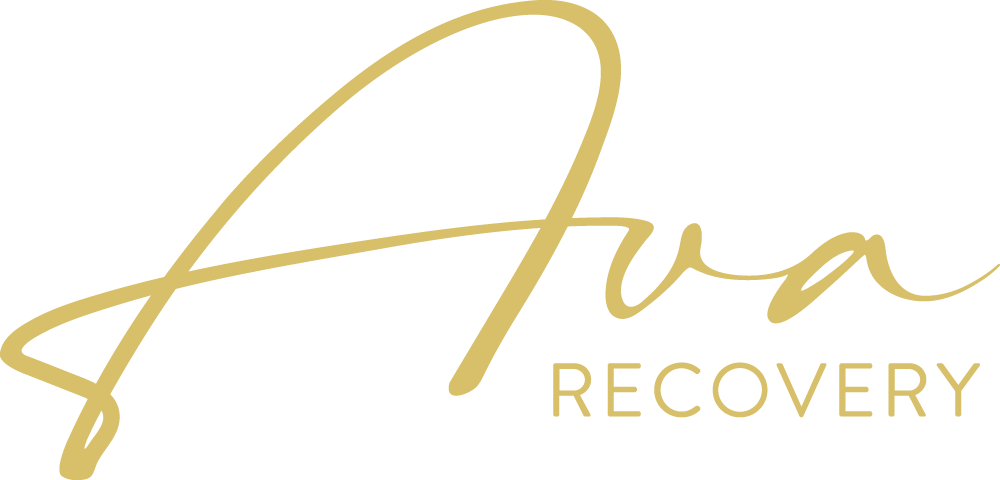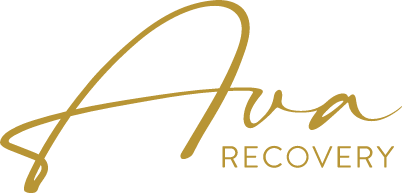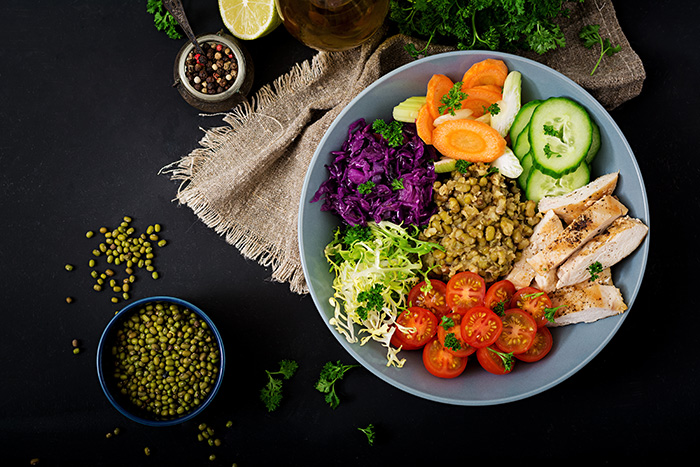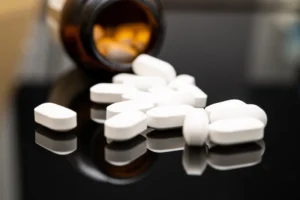What you eat plays a key role in how your body functions and how you feel mentally. As such, nutrition and wellness programs play a particularly important role in enhancing recovery because they give you access to necessary education and resources you can apply to improve your mental and physical health.
What You Learn from Nutrition and Wellness Programs
Nutrition and wellness programs refer to a category of programs offered by some recovery centers that include counseling on improving mental clarity and physical recovery through nutrition.
When you participate in nutrition and wellness programs, you learn about:
- The relationship between a well-balanced diet and energy
- How the food you eat can improve or detract from cognitive function
- The right type of healthy snacks to encourage good sleep quality and balance your mood
- The way certain foods can affect brain health and help you rebuild connections that were damaged by drugs and alcohol
- What types of nutrients your body needs most and the best ways to get those nutrients
Learning About Portions
With the right type of nutrition and wellness programs, you can learn simple and effective ways to incorporate healthier foods into your daily life. For example, you might learn that you need five portions of fruit or vegetables each day to help improve your immune health, mood, and brain function, but you’ll also learn how to identify what a portion size is, whether you are working with dried fruit, smoothies, fresh fruit, or canned vegetables.
For example, one portion looks different depending on the food. A cup of cooked broccoli, a half-cup of cubed melon, and once ounce of raisins all equal one portion each.
With this information in mind, you can easily add one portion size of dried fruit to your morning cereal, swap out an afternoon cookie or snack for a portion of melon, and enjoy some raw vegetables dipped in hummus.
Picking Foods for Your Needs
The right types of nutrition and wellness programs will teach you that many serotonin receptors are located in the gut, which means that what you eat has a very strong impact on your mood.
You might learn that incorporating salmon, nuts, leafy greens, oatmeal, and bananas into your diet can help you naturally boost feel-good hormones that improve feelings of depression. This is critical for people in recovery who struggle strongly with feelings of isolation, anxiety, and depression.
Similarly you can pick foods that give you more energy so that you can focus clearly on the lessons being taught in your group therapy sessions or more actively participate in developing coping mechanisms with individual therapy. Your body will get tired if you don’t have enough water because your body can’t carry essential nutrients to different areas so staying hydrated can help you feel more energized.
In fact, the right types of nutrition and wellness programs will help you understand the links between a different type of craving in recovery: food cravings. If, for example, you have a strong craving for chocolate, it might simply be that your body needs magnesium.
Magnesium deficiency is very common, and it can disrupt sleep quality, energy levels, cognitive focus, and mood. By incorporating small portions of healthy foods into your daily diet that have higher levels of magnesium, like broccoli, you’ll find that you are in a much better place to focus on your recovery.
Participating in Nutrition and Wellness Programs with Ava Recovery
At Ava Recovery, we offer dual diagnosis treatment for people who are struggling with co-occurring mental health and substance abuse disorders. We specialize in offering individual programs that meet your unique circumstances and needs. For many people in recovery, this extends to nutrition and wellness programs that help improve mood, reducing symptoms of things like depressive disorders or anxiety disorders while at the same time helping you manage recovery from substance abuse.
Overall, there are several types of nutrition and wellness programs out there, each of which offer educational resources for understanding the important relationship between food and how you feel and think. With a deeper understanding of these links, you can be selective about what you eat so that you have more focus, energy, and improved mood during the recovery.
Reach out to our drug rehab in Austin to learn more about our personalized addiction treatment plans.






